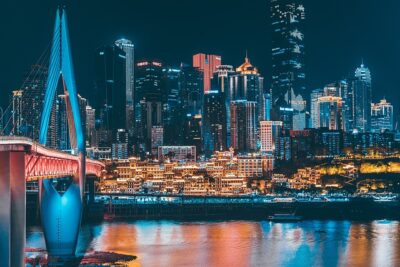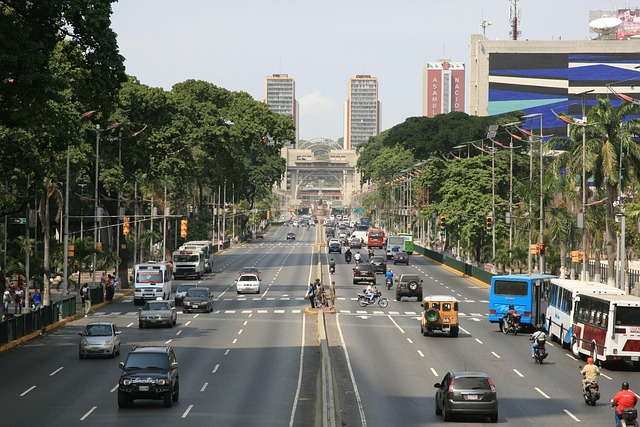 Theodore Kaczynski, the UNA bomber, passed away recently. He is partly remembered for his philosophical writings, in which he describes humanity as over-socialised, unfree and trapped in the intricate web of industrial society. He himself moved to the wilderness and attempted a life there.
Theodore Kaczynski, the UNA bomber, passed away recently. He is partly remembered for his philosophical writings, in which he describes humanity as over-socialised, unfree and trapped in the intricate web of industrial society. He himself moved to the wilderness and attempted a life there.
Kaczynski is best known for the bombs he sent to selected people in companies and universities who were considered to represent negative aspects of technological development. His letter bombs resulted in three deaths and twenty injuries between 1978 and 1995.
Kaczynski’s actions are unforgivable, but many have nevertheless looked at his writings with curiosity, and there is some thought-provoking reading for those who are sceptical of excessive technological optimism.
I am not going to analyse the texts in depth, others do it better. In short, the industrial revolution is mostly described from a negative point of view; it is also considered to have damaged humanity. Man has been transformed into an over-adapted animal in a cage, where free choice is limited to trivialities such as pizza or hamburgers, Coca Cola or Pepsi.
But I want to look at how we as media consumers and readers view a person like Kaczynski. And I would say that the vast majority of us dismiss him without much thought. And even if he had not sent his bombs, we would ignore his criticism of industrial society. Nor would the dismissal be based on some specific details in his texts, no, we would dismiss Kaczynski even before reading.
Why? Well, any real criticism of industrialism, development and progress is viewed with reflexive scepticism by most people. We are convinced that technological progress cannot be stopped. The train of industrialism is hurtling ever faster forward, and there is no turning back. Only forward. There is no stop button, and certainly no reverse gear.
And even those who yearn for turn-of-the-century houses, more beautiful city centres with Habsburg parks interspersed among the buildings, and beautiful ornate bridges over the rivers. Not even they believe for a moment that the locomotive of industrialism can be stopped, they just want the train to choose another track, that we may have chosen the wrong direction, but no one questions the journey itself, not even environmentalists or climate enthusiasts. They would like to live in the countryside or in the forest, yes, but not without solar panels, batteries, fridges and internet access.
We are deeply and sincerely afraid that if the journey were to be interrupted, the fairy tale would be over, and our smartphones, cars, video games, TV screens, espresso machines, everything, would disappear, along with modern medicines, hospitals, social security, holidays, and free business lunches with colleagues.
So we would rather not even entertain the idea of giving up the high-tech life and moving to the forest. Most of us could not cope with such a life, and few would want to live it, so we cling to the advancing train. There is no other choice. At least that’s what we tell ourselves. It is better for humans to adapt to technological development, and if we are lucky, something good will come of it. I think that’s how many people think.
We are resigned to the technology, and quietly accept it. When chatbots/AI are introduced, everyone knows that this is the way of the future, the same with Apple’s new mixed-reality headset; you just have to accept it, because it will be standard in a few years. It’s all about keeping up. Even the complainers will be on board in a while. The complaints are mostly of a ritual nature, which slowly turns into acceptance. In recent years we have seen at least one failure, especially the Facebook/Meta virtual world, which was a real flop, perhaps mostly because of its poor graphics and design. Some accidents at work are to be expected, the industrial locomotive continues its journey despite a minor dent in the rails.
But dare I remind you that constant acceleration is a myth? All journeys end, or are interrupted at some point.
After the fall of Western Roman Empire, it took over 600 years for similar architecture and monumental buildings to be rebuilt in Europe. And it took 1700 years, after the Romans conquered Alexandria and put science out of business, before we could build similar clockwork and mechanical devices. The steam engine, already known to them at the time, also had to sleep for nearly two millennia before the British reinvented it. Instead of opening giant temple gates in the Hellenistic world, it pumped water from mine shafts in 18th century England.
Yet the myth of the eternal journey persists, even though we recognise that progress can be halted for millennia. Perhaps it is different this time? In Alexandria, only a few people knew the secrets of the scholars, but now the genie is out of the bottle and knowledge has spread to thousands of universities around the world. Knowledge cannot be suppressed by burning a library or gagging a few scientists.
No, it’s true, or at least it was true. But how many engineers know exactly how a computer works, and can build one? And where do we store today’s information? Not on paper, but on servers that require electricity, an internet connection and constant maintenance. The decline and fall may be further away than before, but its impossibility is seriously overestimated.







